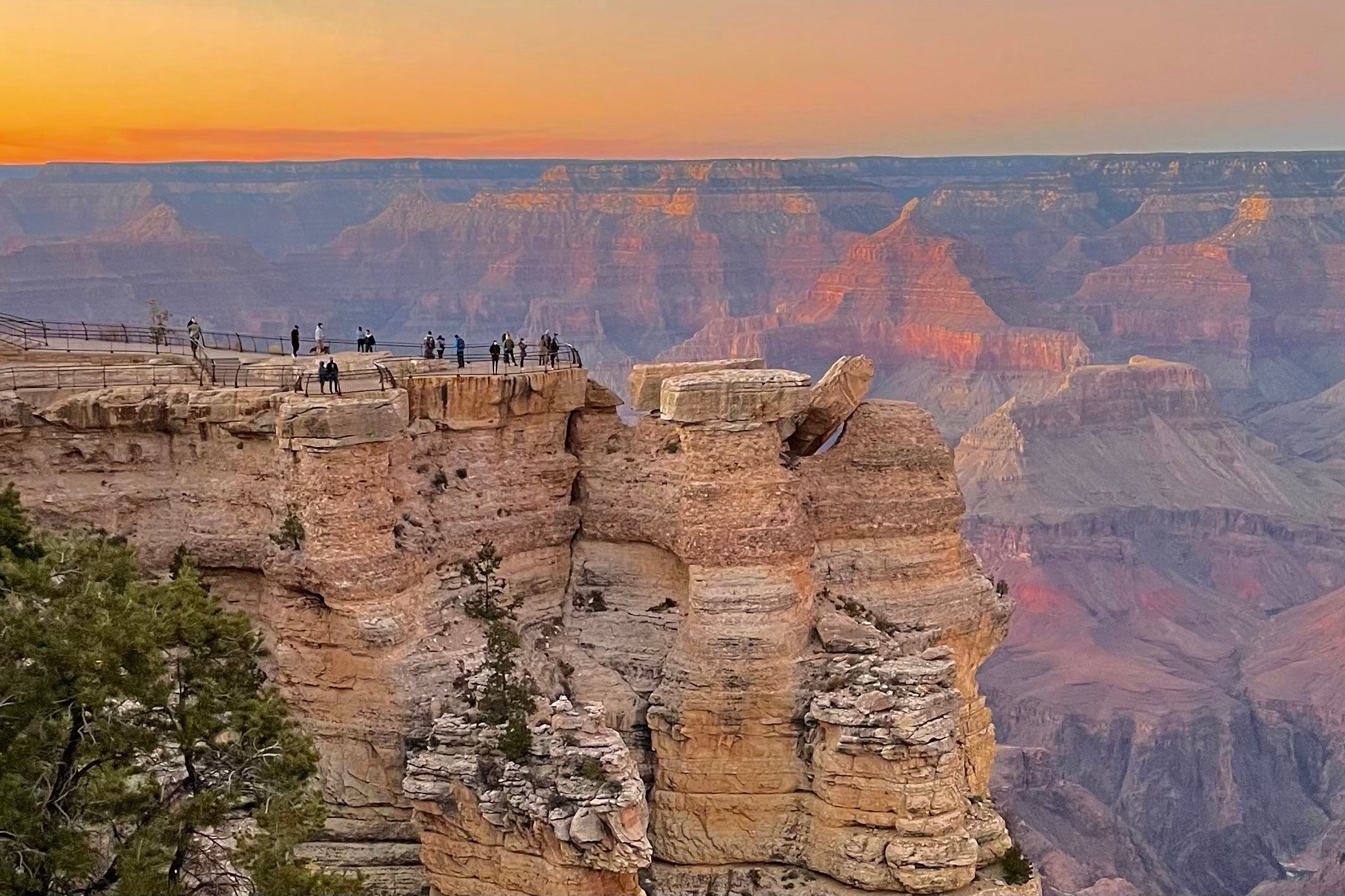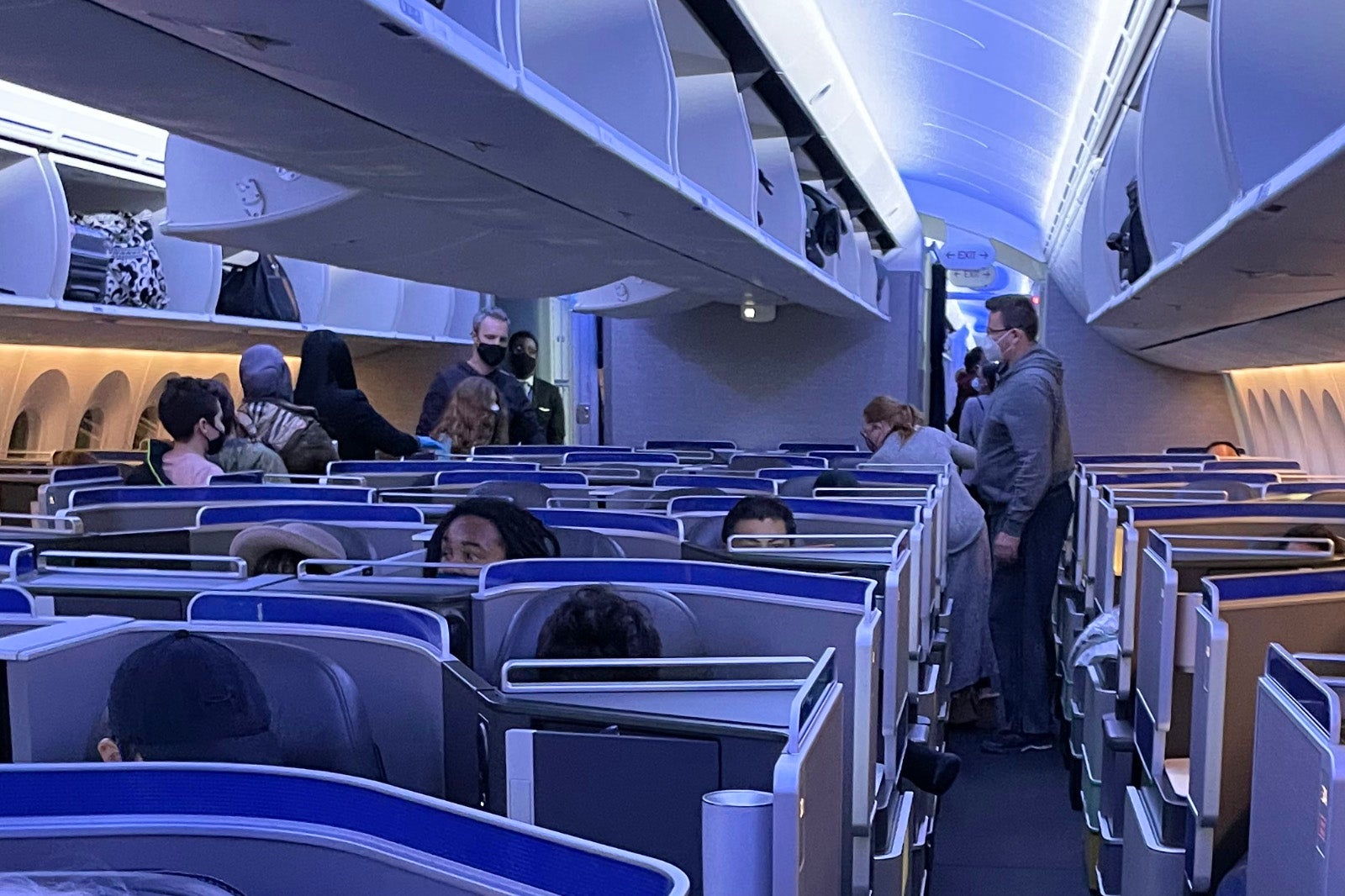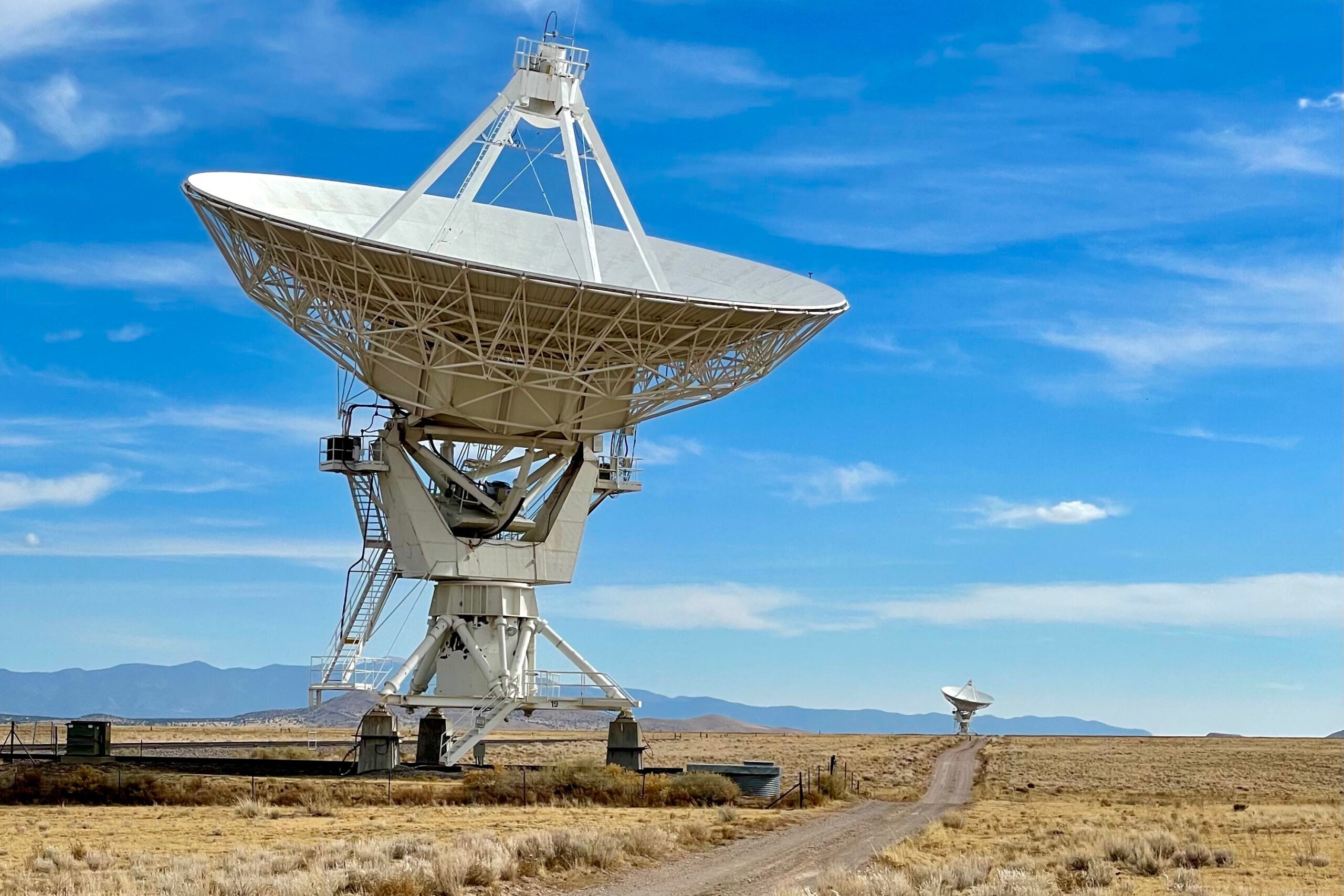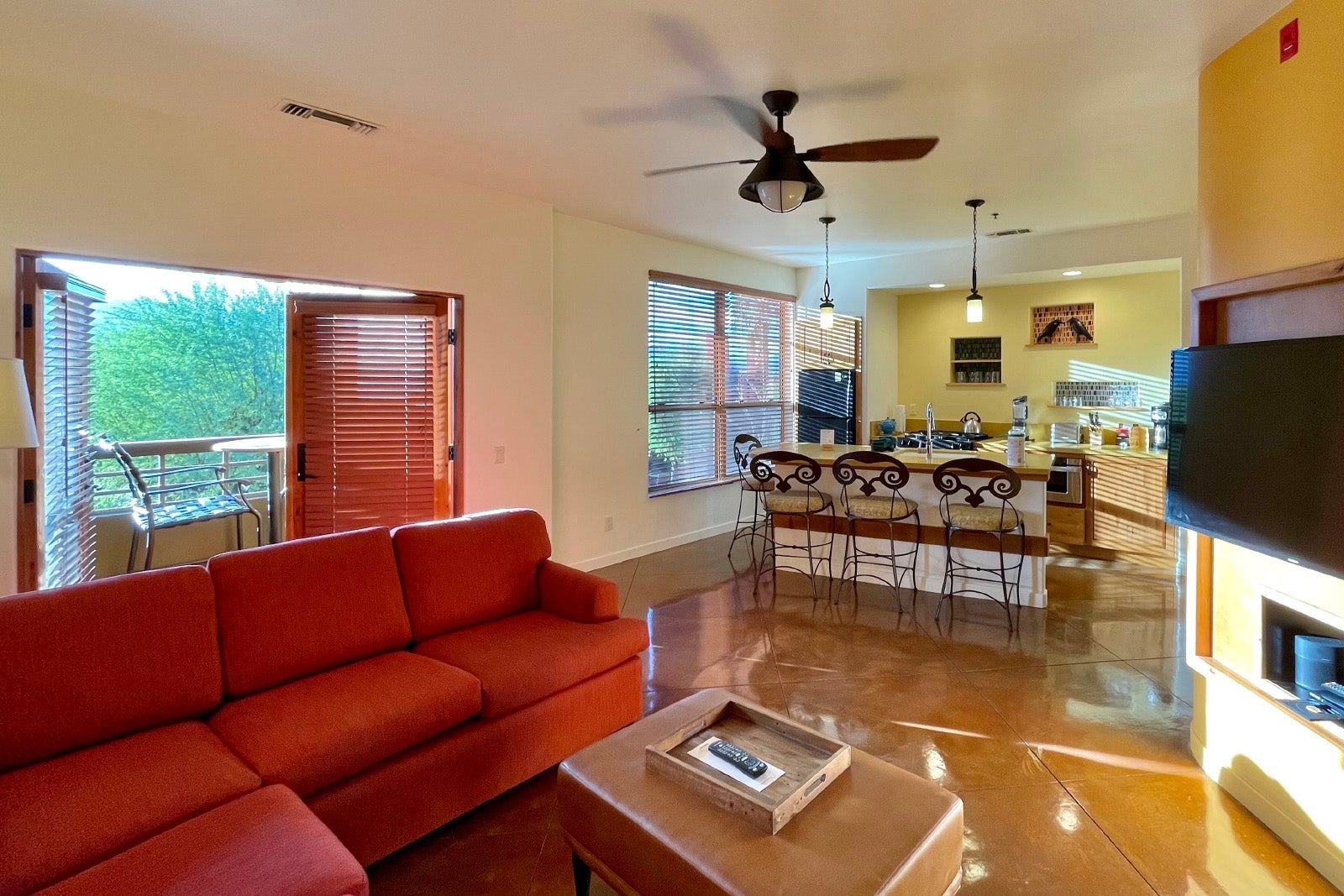The only reason I'm still comfortable traveling during the pandemic
A few weeks ago, following several months of travel during the pandemic for both work and leisure, TPG's director of travel content, Summer Hull, decided to cancel her upcoming trips. And I certainly share her concerns.
The novel coronavirus is raging across the United States, and the safest place for us — and for others — is at home. But after nine months of social isolation, it's understandable why people, including myself, are moving around again. Armed with the right precautions, equipment and mindset, I do think it's possible (albeit stressful) to travel safely right now. And after a challenging yet incredibly rewarding trip to the Southwest, I even booked another flight this month.

You may have seen that I've been especially outspoken about mask compliance, and the reasons why we should avoid gathering with family members and friends. So, is it unfair of me to now be explaining how you can safely travel, even as the infection rate in America hits all-time highs?
While I took several road trips this summer, including a month-long house rental in Maine, I waited more than six months into the pandemic before booking a flight. Even then, I stuck with a product I knew would offer me more space. I've since flown within the U.S. as well, but I'm especially selective about which flights I book, as I dig into a bit more below.
The only reason I feel comfortable traveling during the pandemic is because I'm able to take all the necessary precautions, including isolating before travel, minimizing my interactions with others and flying with N95 masks.
To be clear, I don't want to encourage you to travel if you don't already feel comfortable leaving home. It's absolutely critical to be thoughtful when it comes to travel right now, and it continues to be a deeply personal decision.
But knowing that many people will continue traveling despite guidance from the U.S. Centers for Disease Control and Prevention (CDC), I want to outline the precautions I've taken and will continue to take. Here's what I learned on my most recent trip, and why I feel comfortable following through with the other vacation I planned.
For more TPG news delivered each morning to your inbox, sign up for our daily newsletter.
Essential precautions
My biggest concern is inadvertently infecting someone else during my travels, so I've been taking extra precautions before a trip. That means isolating as best I can for two weeks before a flight — completely avoiding any potential for exposure except during brief, essential grocery runs — and taking at least one test, even if it isn't required. I also always wear an N95 mask when indoors outside my home, which further decreases the likelihood of spreading the coronavirus.

I will not fly to see family or come into any close contact with anyone outside my household without first isolating for two weeks. That means being around family members or friends without a mask is absolutely out of the question if I haven't been able to successfully quarantine for two weeks before receiving a negative test.
I also do my best to avoid contracting the coronavirus at home, regardless of whether or not I have an upcoming trip. I wear an N95 mask whenever I go grocery shopping, and never remove my mask indoors outside my home. Finally, indoor dining is off-limits to everyone in my household and has been since early March.
Flying with extra space

Airplanes are tricky. While it's possible to distance during much of the airport experience, it's all but impossible on many flights right now, especially within the U.S. Mask requirements are key — if all passengers wear them properly and consistently, there's likely a low risk of contracting COVID-19 onboard.
Still, will I book a basic economy fare and risk getting stuck in a middle seat? Hell no. But I am willing to fly as long as I can snag the last row of first class on a plane with recliners, with nothing but a bulkhead behind, or a window-facing lie-flat "pod" on an international aircraft — with an N95 mask and eye protection to keep me extra safe.
During our most recent journey, my girlfriend and I always boarded last to avoid getting stuck on the jet bridge or in the aisle, and to minimize our time on the plane. We also skipped all inflight meals and drinks, and only removed our masks once, to quickly drink water and eat some instant ramen in a private "phone room" at the Chicago (ORD) United Club.
Strict testing protocols
Going forward, my preference would be to only travel to destinations that require a negative COVID-19 test. Sure, my fellow flyers could still become contagious within the standard 72-hour period after testing negative three days before. But travelers who choose a destination with strict protocols are more likely to employ extra caution at home.
New hotel priorities
Before the pandemic, I'd go out of my way to book a five-star hotel and, ideally, lock in a suite. Now, since we know that the coronavirus can linger in the air, I care less about luxury and more about proper ventilation.
If a two-star roadside hotel has windows that open all the way and low enough occupancy to keep my room empty for 24 hours before I arrive, that's where I'll book, even if it's less of a "deal" than a posh property downtown. Try to do these three things before booking your next hotel stay during the pandemic.
Flexible reservations
While most airlines continue to allow for fee-free last-minute changes, and may even issue a voucher for future travel if you choose to cancel, many hotels have reinstated their pre-pandemic policies, making it more difficult to collect a refund if you need to make a last-minute cancellation.
In general, it's up to individual hotels to issue a refund or allow for date changes for a nonrefundable stay, or one that's changed after a cancellation deadline. Points refunds are often processed by the chain, however, leaving the refund decision up to reservations agents, who may be more flexible than an in-house accounting team.
Also, points and certificates from canceled award stays are typically available to use again right away, while credit card refunds could take weeks or even months to process, depending on the hotel.
Just make sure you're using the most flexible hotel points and airline miles if you're booking travel during (and after) the pandemic.
Masks are a must

Unfortunately, points won't save you here. There's no question that proper face masks are the most effective tool at our disposal when it comes to limiting the spread of COVID-19. Yet in some locations, I've noticed both locals and tourists wearing ineffective coverings, or none at all.
During my most recent trip, I witnessed the best mask adoption in New Mexico and California, while masks were hit or miss in Arizona, with the exception of Flagstaff, where everyone was covered up.

I managed to avoid maskless guests at attractions and hotels, and made sure to wear my N95 when passing through the lobby or on unavoidable elevator trips, but it isn't nearly as easy to distance yourself from mask-averse travelers on a plane.
While all U.S. airlines now require masks, travelers are allowed to remove them to eat and drink, leading some flyers to "drink" from takeoff to landing. Masks were worn consistently on both of my flights to New Mexico, and while I noticed a passenger neglecting to cover up on my nonstop flight home from Los Angeles (LAX), she wore a mask for the rest of the flight after a flight attendant stopped by for a chat.
Spend time outdoors

We set out to build an itinerary that focused on wide-open spaces, including off-the-beaten-path attractions and national parks. That gave us an opportunity to lower our guard and enjoy the great outdoors, though we did miss out on some fun scenery in Sedona, Arizona, after seeing an abundance of mask-less hikers.
On our trip, it was impossible to avoid other people entirely, but we did our best to minimize interactions, choosing off-peak travel dates and times, using side entrances to hotels, seeking out empty gas stations and sticking to take-out and drive-thru dining.
Have an isolation plan

On my road trip, if we began to feel symptomatic, the plan was to get a rapid test. If positive, we'd inform our current hotel and ask to extend our stay. We were never out of range of restaurant delivery and traveled with plenty of energy bars just in case.
An unlikely "Plan B" was to drive to California and pay to put my family up in a rental home while we stayed in their house. On the way, we'd only stop for refueling at empty gas stations, distanced restaurant pick-ups and outdoor bathroom breaks. It wouldn't have been fun, but it was an option if we ended up stuck.
On my next trip, we'll be able to get tested locally and, in the result of a positive test, stay in our current house. It's an unlikely scenario, since we're isolating and only traveling after multiple negative tests. But still, it's never been more important to have a back-up plan.
Related: Why points and miles should be part of your emergency preparedness plan
Bottom line
As stressful as it was to encounter maskless travelers throughout our trip to the Southwest, we felt safe overall and didn't have any negative experiences when flying.
While I've decided not to return to some of these destinations — including Tucson and Sedona, Arizona — until the coronavirus is no longer a threat, I feel comfortable traveling to locations where the virus is under control and both masks and negative COVID-19 tests are required.
That's what led me, ultimately, to book a flight to the Caribbean for my final trip of the year.
I've been especially cautious throughout the pandemic, but I don't want anyone to read this post and think, "If Zach can do it, I can, too." The decision to travel (or not) is incredibly personal and complicated. I've cut back on my normal level of travel considerably, and will only visit destinations where it's possible to avoid being indoors with strangers and where I can easily isolate if I test positive or begin having symptoms of COVID-19.
Traveling during the pandemic requires extra planning, caution and patience, and if you're setting out with the same approach you employed in 2019, you risk endangering yourself, your loved ones and complete strangers, too.
TPG featured card
at Capital One's secure site
Terms & restrictions apply. See rates & fees.
| 5X miles | Earn 5X miles on hotels, vacation rentals and rental cars booked through Capital One Travel |
| 2X miles | Earn unlimited 2X miles on every purchase, every day |
Pros
- Stellar welcome offer of 75,000 miles after spending $4,000 on purchases in the first three months from account opening. Plus, a $250 Capital One Travel credit to use in your first cardholder year upon account opening.
- You'll earn 2 miles per dollar on every purchase, which means you won't have to worry about memorizing bonus categories
- Rewards are versatile and can be redeemed for a statement credit or transferred to Capital One’s transfer partners
Cons
- Highest bonus-earning categories only on travel booked via Capital One Travel
- LIMITED-TIME OFFER: Enjoy $250 to use on Capital One Travel in your first cardholder year, plus earn 75,000 bonus miles once you spend $4,000 on purchases within the first 3 months from account opening - that’s equal to $1,000 in travel
- Earn unlimited 2X miles on every purchase, every day
- Earn 5X miles on hotels, vacation rentals and rental cars booked through Capital One Travel
- Miles won't expire for the life of the account and there's no limit to how many you can earn
- Receive up to a $120 credit for Global Entry or TSA PreCheck®
- Use your miles to get reimbursed for any travel purchase—or redeem by booking a trip through Capital One Travel
- Enjoy a $50 experience credit and other premium benefits with every hotel and vacation rental booked from the Lifestyle Collection
- Transfer your miles to your choice of 15+ travel loyalty programs
- Top rated mobile app


